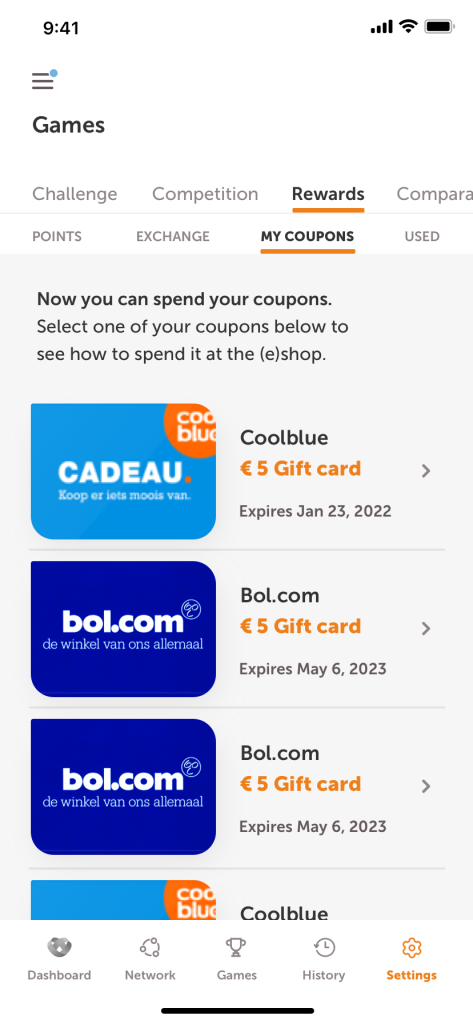 Organizations that want to reward their participants make agreements about this with Selfcare. Rewards are eVouchers from renowned companies such as Bol.com, Coolblue, HEMA and many others.
Organizations that want to reward their participants make agreements about this with Selfcare. Rewards are eVouchers from renowned companies such as Bol.com, Coolblue, HEMA and many others.
Participants can be rewarded for participating in a study (SelfcareResearch), for participating in a challenge (SelfcarePro) or for performing a measurement. The organization determines the condition and value of the reward, Selfcare determines whether the stipulated condition(s) has been met and then makes the reward available to the participant. Selfcare does not provide any information to the organization that relates to an individual participant.
An example: a freight forwarder wants to encourage the healthy behavior of its employees. At the request of the freight forwarder, employees can participate in a challenge in which the participants of the team that finishes first receive five eVouchers, the team that finishes second receives three eVouchers and the team that finishes third receives two eVouchers. Selfcare issues the eVouchers on behalf of the forwarding agent, but does not provide the forwarding agent with insight into which employee was in which team and how many eVouchers individual employees have received. The forwarder will only be told how many eVouchers have been paid out in total.
It may happen that the organization wants to check whether Selfcare has correctly applied the agreed remuneration rules. In that case, the organization asks an independent person, such as a lawyer or an accountant who is not employed by the organization, to carry out this audit. This independent person may have access to personal data for the purpose of checking. The independent person only reports to the organization whether Selfcare has correctly implemented the remuneration rules for the organization as a whole. This report therefore does not contain any information that could lead to the identification of a specific person.
